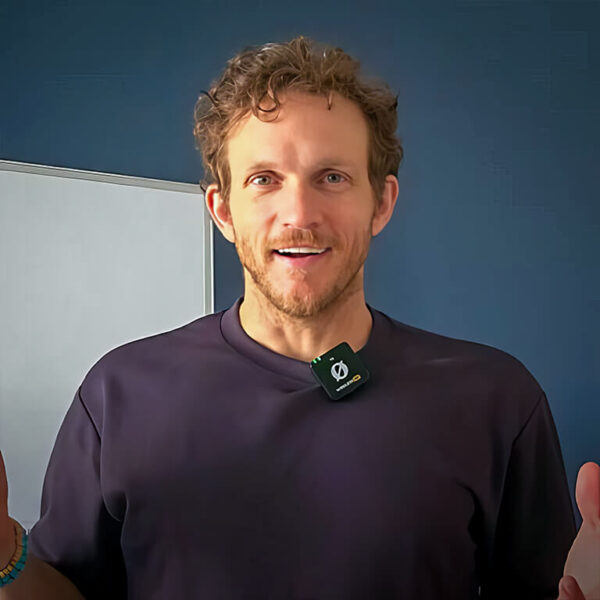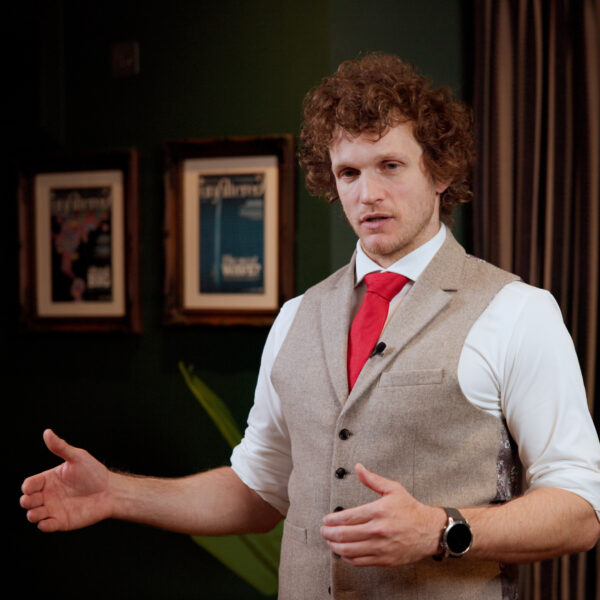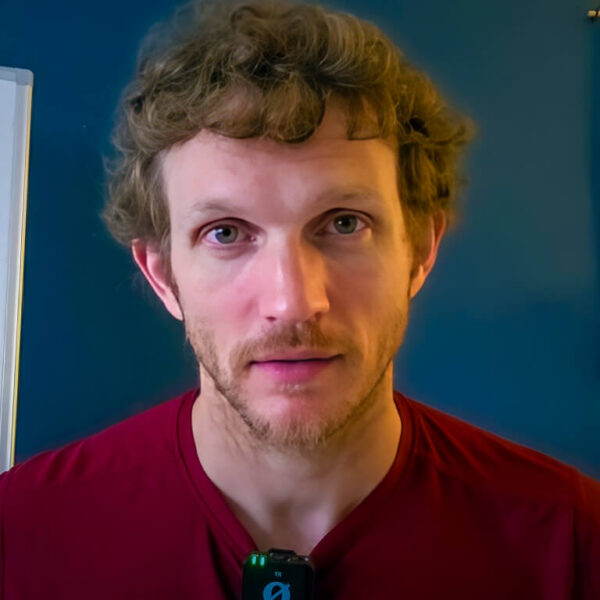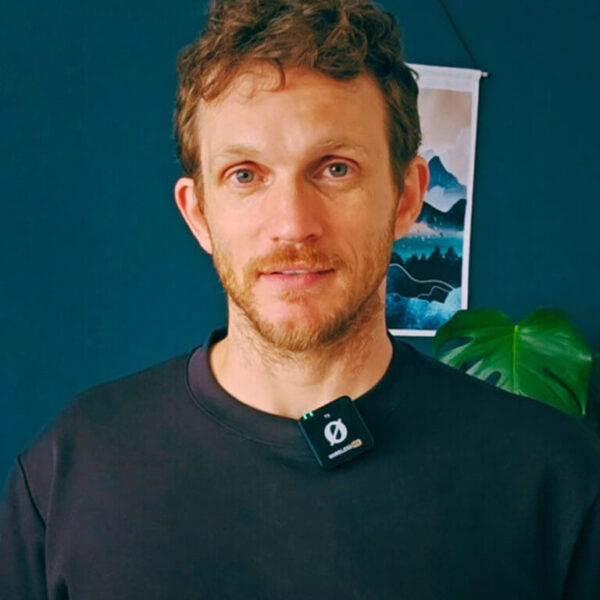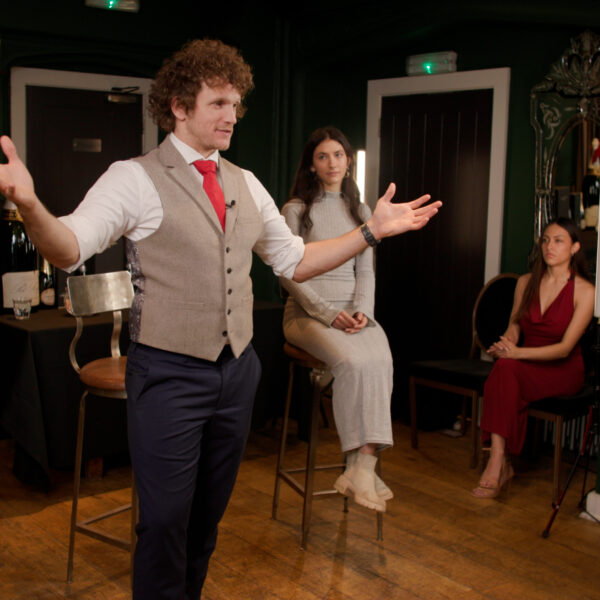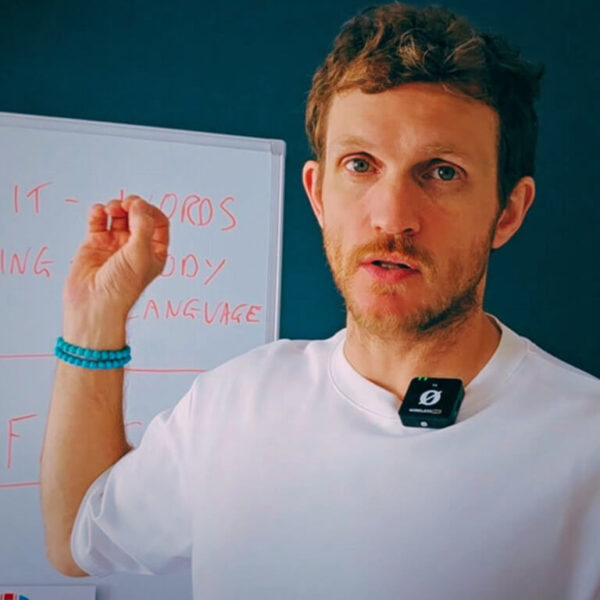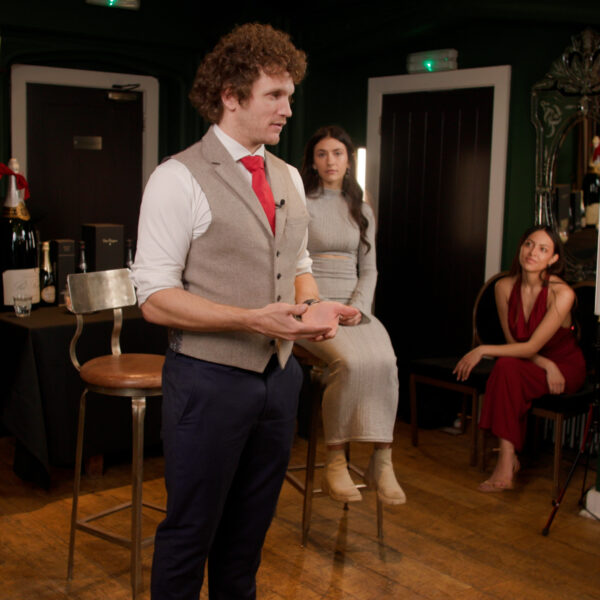
Why Most of Us Stay Stuck in the Cycle of Stress
Most of us feel more alive when we’re stressed. That’s why one of the hardest things in the world is to calm down and relax when you’re already overwhelmed.
Because if you’re anything like me, when you’re stressed, you feel like you don’t want to relax. You don’t want to calm down. You feel like you need to get more things done.
And that’s how you stay stuck in that cycle.
The Hidden Problem with Staying in High Gear
Here comes the real problem.
If you stay at that heightened level of stress all the time, eventually you will crash and burn.
In my personal life, I go through cycles of this like most people living in a capitalist society. The constant message is to do more, give more, be more.
Eventually, this ends up in burnout.
Even after running my own business for 17 years, I still occasionally get burnt out. But nowhere near as bad as I used to.
Why?
Because over time, I’ve learned to use the tools that actually work for me. And I stick to them.
Why Relaxation Isn’t Optional
It’s easy to watch videos. It’s easy to read books.
But if you don’t actually learn how to relax, you’re always going to be stressed.
Relaxation can be anything that allows you to pause and calm down your nervous system. That might be meditation, reflection, breathwork.
For me, it’s not ice baths or cold showers.
They release too many feel-good chemicals. You feel better temporarily, but then you stay stuck in the same high-stress cycle.
What you’re really aiming for is relaxation without the rush of endorphins. That’s how you start to lower your baseline stress levels.
How to Avoid Burnout by Taking Just 15 Percent Off the Top
If you took just 15 percent of that stress intensity out of your system—every day, every week, every month, every year—your life would change.
You’d be less likely to burn out.
You’d be more likely to enjoy the process.
What I Do Every Morning to Manage Stress
When I’m feeling overwhelmed, here’s what I do.
Before I turn my phone on
Before I exercise
Before I do anything else
I sit downstairs in a chair and think about my life.
I relax all of my body and I just sit there calmly. I think about the things that are stressing me out. I don’t try to fix them. I just reflect.
Every time I do this, I feel more present.
Even this morning when I did it, I noticed the contours of my hands. That’s how present I felt in the moment.
Why It’s Hard to Want to Relax
The problem is, you may not even want to relax.
That’s something I’ve struggled with many times.
It’s almost impossible to relax when you’ve got too much going on.
So over the years, I’ve simplified my life. I’ve removed stressors.
One of the biggest changes I made was getting rid of all of my full-time coaches. Managing them was so stressful that it stopped me from being able to relax.
Creating Space in Your Life Is Essential
If the only time you relax is when you collapse at the end of the day, that’s not real rest.
It’s just exhaustion.
And that’s a sign there are stresses in your life that you need to remove.
Think about it this way:
If you removed those stressors and replaced them with relaxation, how much better would your life be?
Because when you are more relaxed, you can face the bigger challenges that actually matter—rather than going 100 miles an hour at tasks that don’t.
How High Stress Affects Presence and Focus
When I’m operating at a high frequency, I struggle to read books. I struggle to be present in conversations.
And I tell myself, “This is the right thing to do. I’ve got to get things done.”
But it’s not true.
It’s just a version of a capitalist lie that we buy into.
Zooming Out on the Bigger Picture
Pause for a second.
You have your whole life ahead of you.
Now zoom out and look at your output over a year, a decade.
If you were just a little calmer, you’d still get all of your work done.
What the Myth of Sisyphus Really Teaches Us
If you know anything about Greek mythology, you’ll know the story of Sisyphus.
He was condemned to push a boulder uphill for eternity.
I used to think the story meant you just keep going, no matter how much stress you’re under.
But I was wrong.
The key to the story is that Sisyphus accepted his reality.
When he accepted his fate, the stress left his system.
And that’s when he was actually able to align his body and push the rock with more presence and calm.
Because if you’re stressed, distracted, and tense, your energy is fragmented.
But when you accept how you feel, you become calm. You become strong. And you can actually move forward with purpose.
Acceptance Is the First Step to Avoiding Burnout
The first step in avoiding burnout is simple but powerful.
Acceptance.
Accept how you feel.
It’s okay to feel tired. It’s okay to feel groggy. It’s okay to feel stressed.
When I sit down in the morning, I just go with how I feel.
I don’t block anything. I don’t try to force a new feeling. I don’t jump in an ice bath to override my emotions.
I just breathe through my nose, calm my nervous system, and sit with it.
And every time I do that, I realize how stressed I’ve actually been.
It’s that realization that tells me: I need to slow down even more.
Why I Stopped Using Meditation Apps
Meditation is one of the most powerful tools to avoid burnout.
But I don’t use apps.
Using your phone to meditate just doesn’t make sense to me. The phone itself is stimulating and stressful.
Instead, I do longer meditations—45 minutes to an hour.
Not 10-minute quick fixes.
That 10-minute mindful break isn’t long enough to actually shift your internal state.
And let’s be honest, if you catch yourself saying, “I don’t have time to meditate,” what you really mean is, “I don’t want to.”
And admitting that is actually a great place to start.
The 45-Minute Meditation That Changed Everything for Me
There’s a powerful program called Shinzen Young’s The Science of Enlightenment.
Inside that program, there’s a meditation called Global Relaxation.
I’ve been doing that same meditation for over 12 years now.
When I feel stressed or overwhelmed, I go back to it.
In fact, after running a two-day training course in London, I was depleted. So today, I’m doing that same 45-minute meditation.
Why I Meditate Lying Down in Bed
I don’t like sitting upright when I meditate.
It holds tension in my body. I’d rather lie down in bed.
And if I fall asleep? That’s fine. It just shows how tired I actually was.
And if I don’t fall asleep, I explore the meditation fully.
But what matters is this:
Meditation is a way of life.
It’s not a trendy class or a 20-minute express yoga session.
It’s a lifestyle shift. And to get results from it, you need to be willing to enter that relaxed state fully.
Before You Meditate, Simplify Your Life
If you’ve got too much going on, even a 45-minute meditation won’t fix things.
You’ll finish the session and jump straight back into a stressful environment.
So yes, meditation gives you rest.
But the bigger win is to change your lifestyle so that your baseline isn’t constantly filled with stress.
That takes more effort. But it gives you long-term peace.
Why I’m Pausing Ice Baths and Cold Showers
I’ve probably done about 30 of these daily vlogs now.
And I’ve found it challenging to record a video every single day—especially while running my dating confidence courses.
It’s been stressful.
So I’ve decided to remove even more stress from my life.
Right now, that means no more ice baths or cold showers.
Even though I’ve done them for years and I know how to calm my nervous system, they’re still a form of stress.
And if your body already has stress in the system, it doesn’t make sense to add more.
Instead, I’m replacing my 4 or 5 minute cold exposure with a 45-minute meditation.
That’s what I need right now. More rest. Less stress.
Switching from Audiobooks to Physical Books
Another change I’m making is switching back to reading physical books.
I normally listen to audiobooks while doing something else.
But I realized that’s just another way I keep myself operating at a high frequency.
It’s that constant self-improvement mindset: “Do more. Learn more. Achieve more.”
Right now, I don’t want that.
So I’m going back to reading physical books, without taking notes.
Just reading. Just enjoying it. Just calming my nervous system.
Relaxation Is the Only Antidote to Burnout
You can remove stressors from your life, and that’s a huge step.
But it’s not enough.
You also have to replace those stressors with actual relaxation.
If you don’t, your body will stay in the same pattern of tension and urgency.
How the Icarus Myth Applies to Burnout
There’s another Greek myth I love: the story of Icarus.
He and his father escaped with wings made of wax. But Icarus flew too close to the sun. The wax melted, and he plummeted to his death.
There are a few interpretations of that myth.
One says: don’t aim too high.
Another says: don’t fly too low either, or you’ll crash into the sea.
And the middle way—fly steadily in between—is kind of boring.
The version I like best is this:
Sometimes it’s okay to fly high.
Sometimes it’s okay to fly low.
Sometimes it’s okay to fly in the middle.
But don’t fly high all the time.
That’s the key.
Check in with yourself.
If you’ve had a few stressful days, don’t just power through. Start meditating. Ground yourself. Find your center again.
What you don’t want is to be like Icarus every day.
Flying high constantly, only to burn out and fall.
Why You Don’t Need to Stay Stressed to Be Successful
Most of my life, I stayed up in that high-stress zone.
Always moving fast. Always pushing. Always telling myself,
“This is what achievement looks like.”
But that’s not true.
Life is often like a Simpsons episode.
There’s a level of homeostasis at the beginning.
You go through ups and downs.
But by the end of the day, you come back to the same baseline.
If that’s the case, then why not do it in a way that supports your health?
Why rush everything? Why stress all the time?
Why not take the time to do things properly—and actually enjoy your life?
My Trick for Managing Overwhelm
There was a time when I felt so overwhelmed that even looking at my to-do list made me anxious.
So I started using post-it notes.
On each post-it, I’d write one goal or task. That’s it.
Then I’d hide all the other tasks from view.
It was the only way I could stay calm and not spiral into stress.
Because let’s be honest—most of the pressure we feel is made up.
Most of what we think is urgent… isn’t.
Most of what we think needs to be done now… doesn’t.
Setting Boundaries to Avoid Burnout
I was running my dating confidence course in London recently and speaking to a girl about phones.
I told her I switch mine off every night.
She asked, “But what if someone needs to contact you?”
I said, “They can contact me in the morning.”
Her reply: “I wouldn’t like that. I’d need my boyfriend to be available if I wanted to call him.”
I said, “What if he’s on a plane?”
And she said, “Well that’s different.”
It’s not.
It’s just about having personal boundaries.
For me, I turn my phone off at 9 p.m.
I don’t turn it back on until around 8 or 9 a.m. the next day.
That gives me at least 12 hours every day without my phone.
No Screens in Bed
I don’t take my phone to bed.
I don’t scroll social media late at night.
I don’t stay up responding to messages.
Because all of that is just another form of stress.
And the whole point of learning how to avoid burnout is to remove stress wherever you can—and replace it with calm.
Written by Gary Gunn
I coach men to build real self-confidence so they can meet, attract and date the women they truly desire.
My coaching is practical, real-world and focused on lasting behavioural change.
Learn More About My Coaching
👉 My Books






